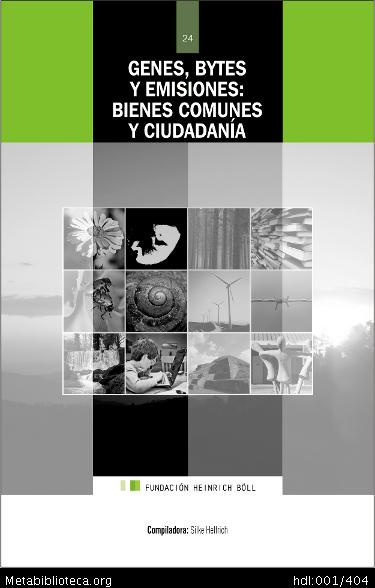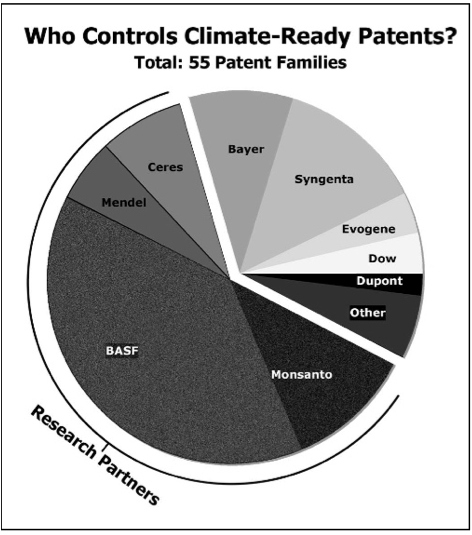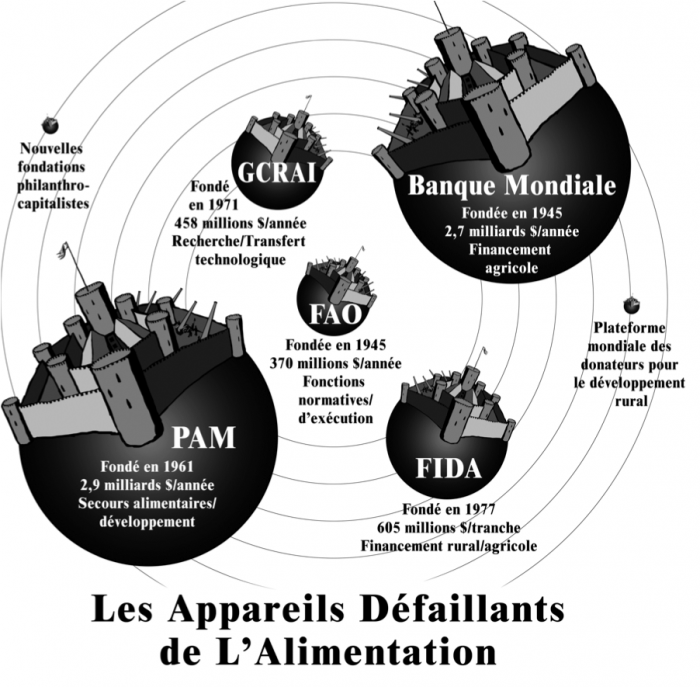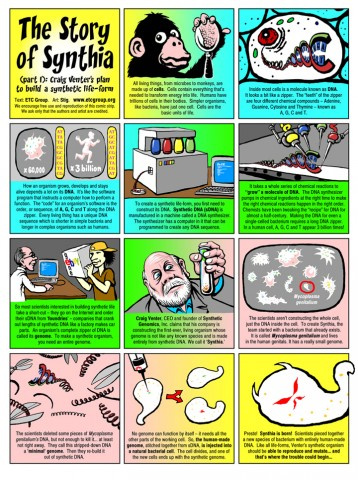Nano-scale technology is a suite of techniques used to manipulate matter at the scale of atoms and molecules. “Nano” is a measurement – not an object. Unlike “biotechnology,” where you know that bios (life) is being manipulated, “nanotechnology” speaks solely to scale. A “nanometre” (nm) equals one billionth of a metre. One human hair is about 80,000 nanometres thick. It takes ten atoms of hydrogen side-by-side to equal one nanometre. A DNA molecule is about 2.5 nm wide. A red blood cell is vast in comparison: about 5,000 nm in diameter. Everything on the nano-scale is invisible to the unaided eye and even to all but the most powerful microscopes.
Briefings

What is nanotechnology?
We are grateful that the Royal Society is willing to accept a submission at this late stage in its proceedings. We regard this submission as an urgent matter, for we are alarmed at the apparent emergence of an "official view", most recently articulated by the UK House of Commons Committee on Innovation, Universities, Science and Skills, which is prepared to sanction real-world geoengineering experiments despite complete absence of any global rules or regulations. We find that emerging view complacent, irresponsible and dangerous. This short note outlines six points on the question of geoengineering governance that no study concerned with policy-making in this critical area should ignore:
...

Issue: The main (and much-needed) goal of the Madrid High-Level meeting is to reorganize the intergovernmental management of food and agriculture. At the last food crisis in 1974, OECD states savaged the UN’s unified system and carved it into four warring factions. In the midst of today's food crisis, the four remain underfunded, weakly governed and dismayingly competitive. The UN Food and Agriculture Organization (FAO), the Consultative Group on International Agricultural Research (CGIAR), the International Fund for Agricultural Development (IFAD) and the biggest “loner” in the crowd, the World Food Program (WFP), are all either suffering from harsh external reviews or major program reorganization. Complicating the problem, UN Secretary-General Ban-Ki Moon’s High-Level Taskforce on the food crisis sees Madrid as an opportunity to segue into the secretariat for the G-8's proposed Global Partnership for Food and Agriculture. This top-down Partnership would substantially weaken G-77 policy influence in UN food fora by constructing an amorphous “compact” dominated by major governments, agribusiness, mega foundations, and multilateral food and financial institutions with just enough CSOs to mute protests against the presence of Monsanto and Gates. Also in Madrid, at the invitation of the Spanish premier, Jeffrey Sachs will be pedalling his proposal for a new vertical fund to draw down corporate and foundation money.

Article for Heinrich Boell Foundation
You can fool some of the people all of the time; and, all of the people some of the time; but, you can't fool all of the people all of the time... However, you may be able to persuade enough of the people to monitor everyone all of the time.
Over 30 years ago, Oxford ethologist, Dr. Richard Dawkins, took sabbatical leave to write The Selfish Gene, one of the most disturbing books in a time of many disturbing books. Dawkins espoused the theory that human evolution is nurtured by numerous forces -- the gene, or DNA -- being only one. Human beings, Dawkins speculated, could evolve cultural memes capable of Darwinian replication. It was an outlandish concept without "coat tails" -- at least that chapter of his book didn't attract many followers.
ETC Group would have given the idea of cultural memetics a pass were it not for a high-level meeting of US government officials, scientists, and industry held in Washington three months after 9/11 that made research into cultural memetics a priority. Then, two years later, a book by Britain's much-respected Astronomer Royal brought us back to memetics with his concern that it may be possible to medicate social attitudes and manipulate human nature.
But, the most compelling reason to track this potentiality is because it makes sense. If, as the UN University‘s 2005 State of the Future Report suggest, we are entering the era of the Massively Destructive Individual - where anyone, anywhere could be devastatingly violent, using anything - then massive surveillance is, at best, a partial response. Aggressive surveillance will elicit a massive social reaction. Better than surveillance is surrender. If society can be cajoled into surrendering its information than the likelihood of a successful defense increases. Better still, if society can be convinced to surrender control over its own actions, then the world's dominating corporate/government partnership can sleep at night. Civil society needs to dissect the logic and the feasibility of all this...

Extreme Genetic Engineering and the Post-Petroleum Sugar Economy
Peak oil, skyrocketing fuel costs and climate crisis are driving corporate enthusiasm for a “biological engineering revolution” that some predict will dramatically transform industrial production of food, energy, materials, medicine and all of nature. Advocates of converging technologies promise a greener, cleaner post-petroleum future where the production of economically important compounds depends not on fossil fuels – but on biological manufacturing platforms fueled by plant sugars. It may sound sweet and clean, but the so-called “sugar economy” will also be the catalyst for a corporate grab on all plant matter – and destruction of biodiversity on a massive scale.

Issue: The world’s largest seed and agrochemical corporations are stockpiling hundreds of monopoly patents on genes in plants that the companies will market as crops genetically engineered to withstand environmental stresses such as drought, heat, cold, floods, saline soils, and more. BASF, Monsanto, Bayer, Syngenta, Dupont and biotech partners have filed 532 patent documents (a total of 55 patent families) on so-called “climate ready” genes at patent offices around the world. In the face of climate chaos and a deepening world food crisis, the Gene Giants are gearing up for a PR offensive to re-brand themselves as climate saviours. The focus on so-called climate-ready genes is a golden opportunity to push genetically engineered crops as a silver bullet solution to climate change. But patented techno-fix seeds will not provide the adaptation strategies that small farmers need to cope with climate change. These proprietary technologies will ultimately concentrate corporate power, drive up costs, inhibit independent research, and further undermine the rights of farmers to save and exchange seeds.

The Global Seed Vault Raises Political/Conservation Debate
The swarm of media attention focusing on today's opening of the Global Seed Vault in Norway's high Arctic may overshadow an even bigger news story. The Norwegian government pledged to give 0.1% of money spent on commercial seed sales to support Farmers' Rights, and challenged other governments to do the same. The critical message is that even the most secure gene bank storage is not the ultimate solution. Governments must provide support to farmers to improve local conservation and breeding, and help them obtain access to far away seed accessions.

Food Sovereignty – à la Cartel?
Because governments have failed to govern, the leading multilateral institutions involved in food and agriculture are in deep trouble. Unless governments and international secretariats cooperate, these institutions will be irreparably damaged and the power vacuum OECD states have created over recent decades will continue to be filled by multinational agribusiness and the new philanthro-capitalists.

In the name of moving “beyond petroleum,” Big Oil, Gene Giants, governments, start-ups and others are forming partnerships that will extend corporate control over more resources in every part of the globe – while keeping the root causes of climate change intact. With grudging recognition that first-generation agrofuels are neither economical nor ecological, investors turn to other life-based technologies, including synthetic biology, for the next alternative fuel fix.

J. Craig Venter Institute Seeks Monopoly Patents on the World's First-Ever Human-Made Life Form
Ten years after Dolly the cloned sheep made her stunning debut, the J. Craig Venter Institute is applying for a patent on a new biological bombshell - the world's first-ever human-made species. The novel bacterium is made entirely with synthetic DNA in the laboratory.
